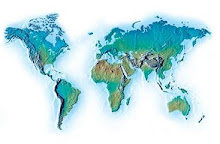
March 22 is World Water Day, which aims to raise awareness around the world about the importance of access to clean, safe water.
Safe drinking water is becoming ever more precious and hard to find. More than 1 billion people in the developing world do not have access to clean water and in many cases rely on water from polluted rivers and lakes and unsafe wells or piped water supplies. The consequences are catastrophic.
About 1.7 million children under age 5 died last year from diarrheal diseases caused by unsafe water and sanitation in developing countries, and millions more were put at significant risk of exposure to water-borne infections such as cholera, typhoid fever, and dysentery. Contaminated drinking water is also a threat to people living with HIV/AIDS.
The recent cholera outbreak in Zimbabwe is a stark example of the need for clean, safe drinking water. More than 91,000 people have contracted cholera, and more than 4,000 have died from this easily preventable and treatable intestinal infection. The disease is rampant because drinking water has been contaminated and people lack the chemicals to purify it.
Those without safe water and sanitation are likely to be poor, hungry, and malnourished. The increasing scarcity of safe water, combined with rapid worldwide population growth and environmental degradation, is also leading to biodiversity loss and agricultural failure.
Improving access to safe drinking water is an important component of health and emergency response programs. Household water treatment and safe storage reduces water-borne disease, empowers families and communities, and improves productivity. These measures complement community and municipal water supply infrastructure programs by providing immediate access to safe water while construction is planned or implemented. Several options for ensuring safe drinking water in the household or at the point-of-use are available, including chlorination, filtration, solar disinfection, and combined methods such as Procter and Gamble’s PuR sachet, which disinfects and removes large particles from water. These inexpensive and easy-to-use solutions can be deployed and adopted rapidly. - source USAID
Water Success Stories - from USAID
- Indonesia: Clean Water for Indonesian Families
- India: Harvesting the Rain
- Iraq: Bringing Safe Water, Promoting Hygiene
- Kyrgyzstan: Clean Water Eases Ethnic Tensions
- Mali: Clean Drinking Water Is A Lifesaver In Mali
"If the millions of women who haul water long distances had a faucet by their door, whole societies could be transformed."
-Tina Rosenberg (National Geographic - http://ngm.nationalgeographic.com/2010/04/water-slaves/rosenberg-text)



No comments:
Post a Comment